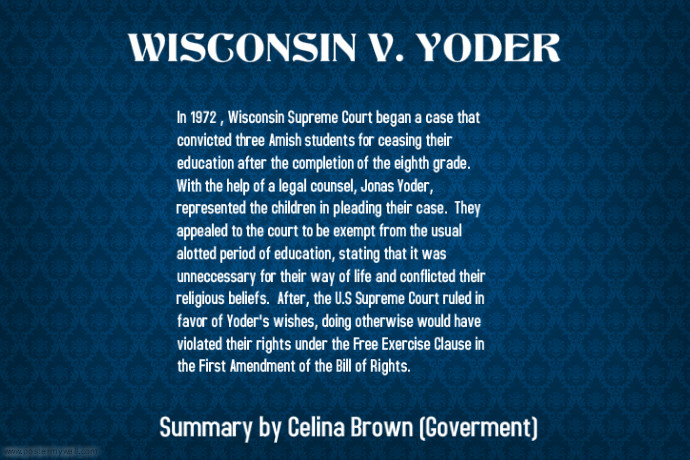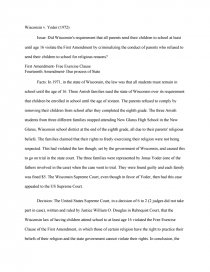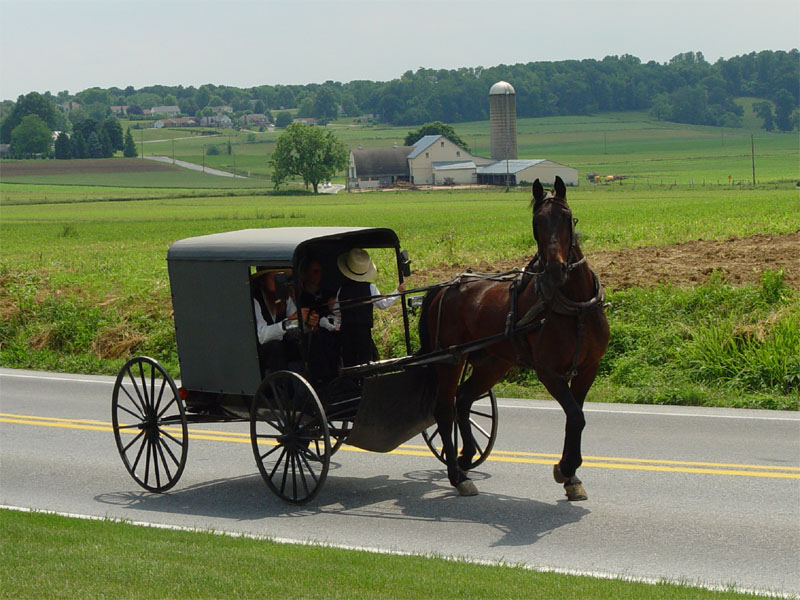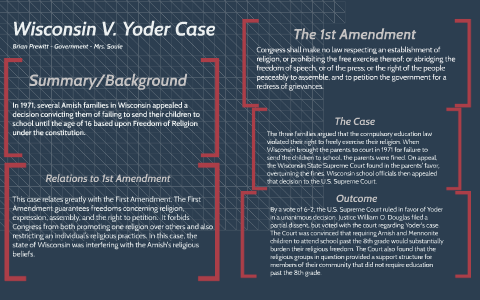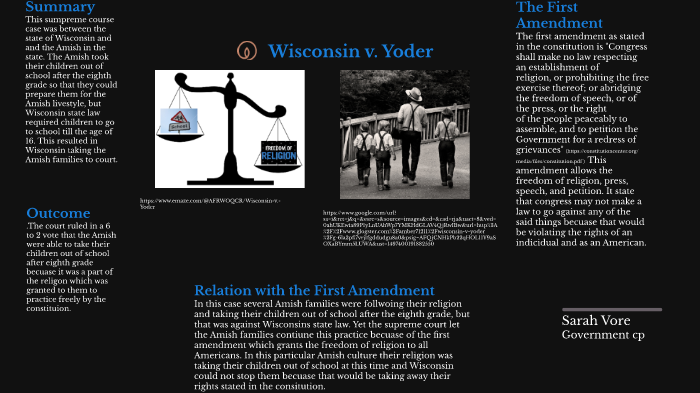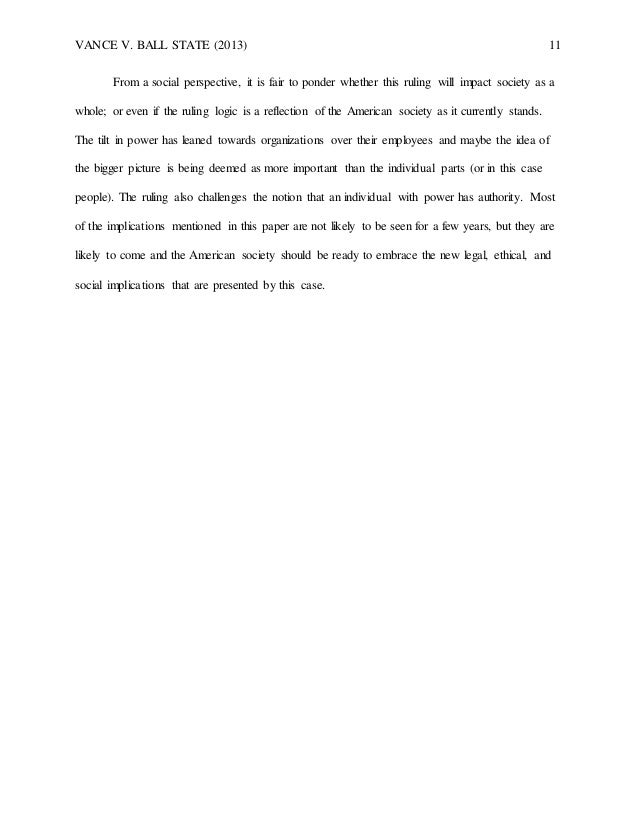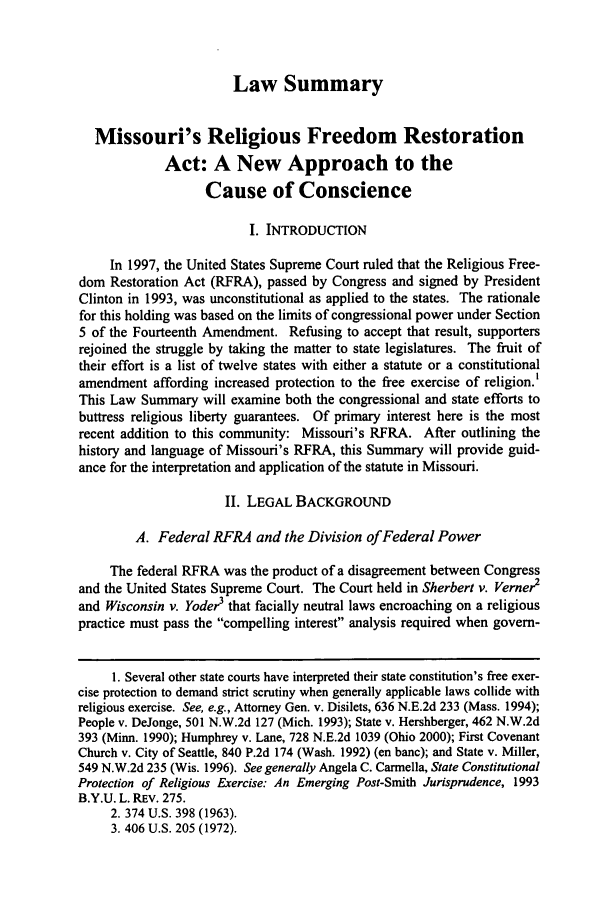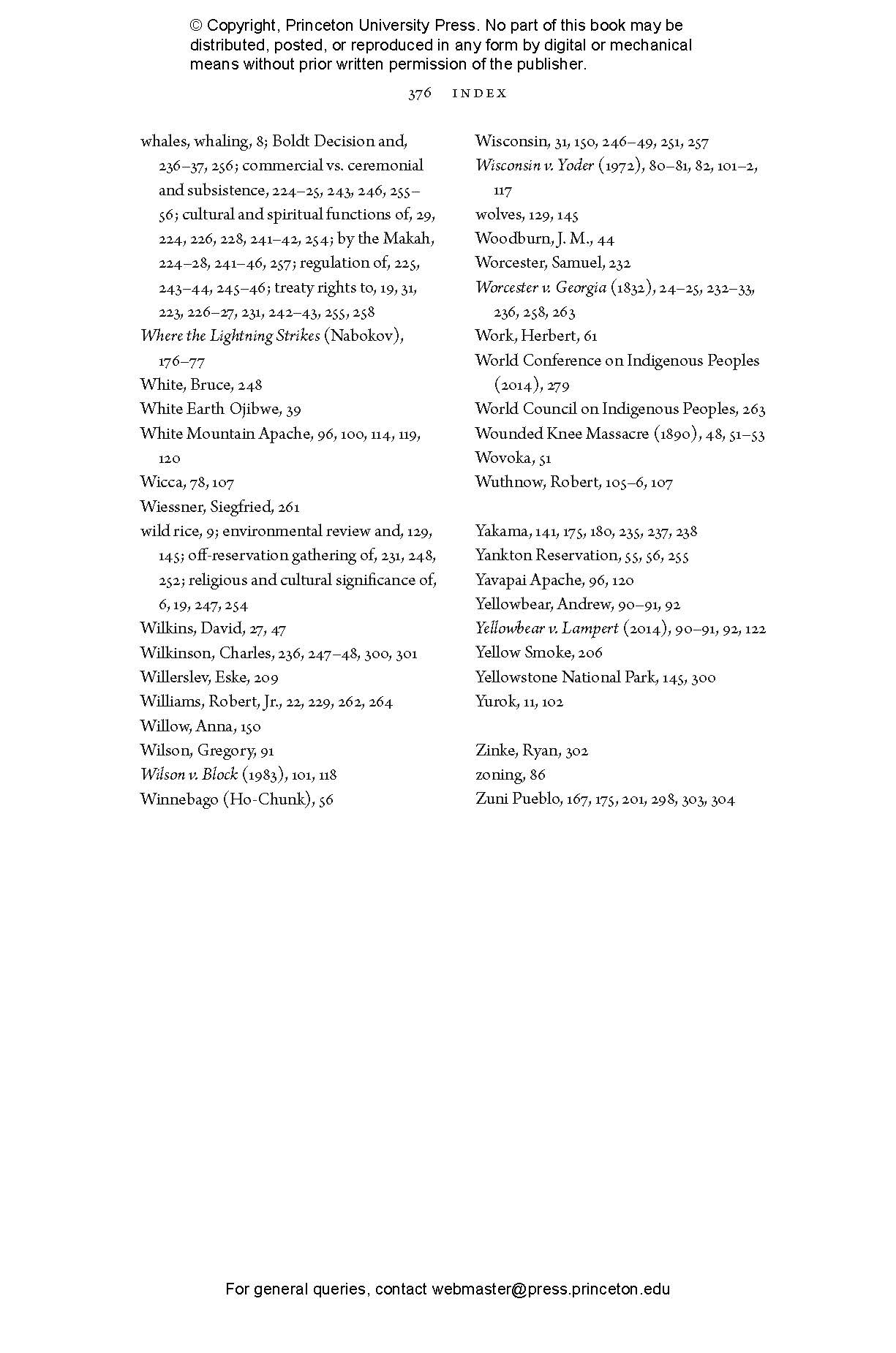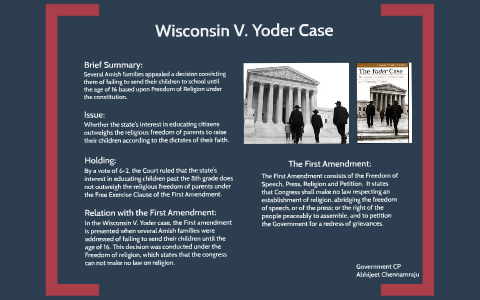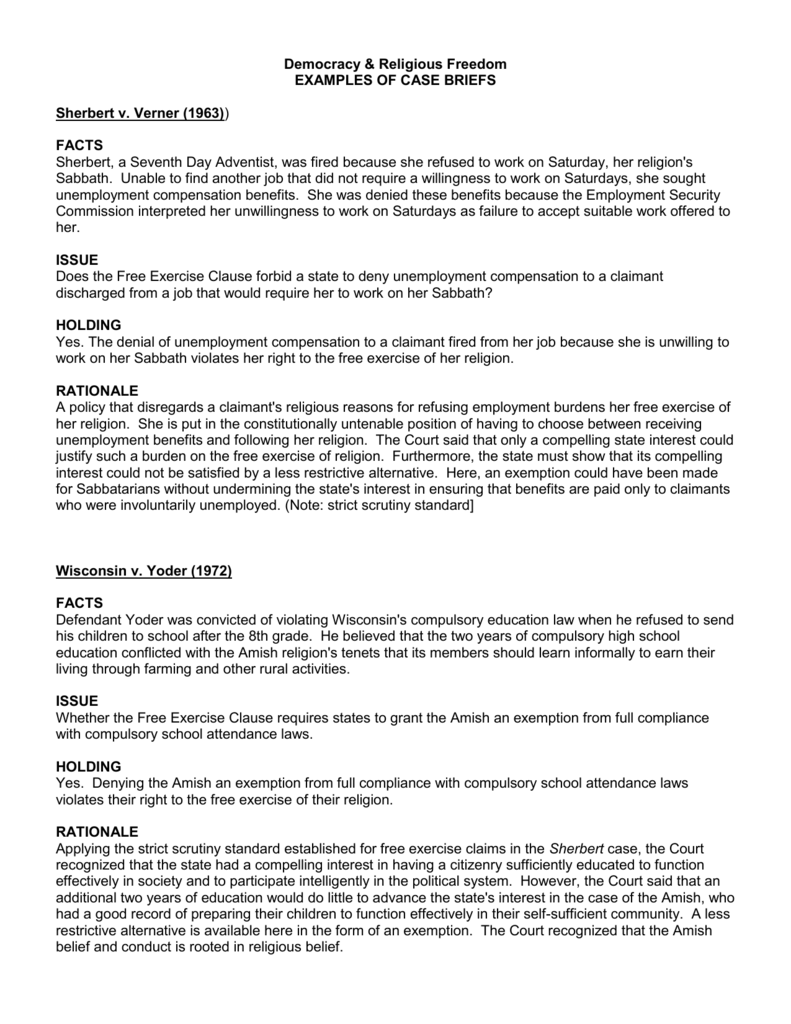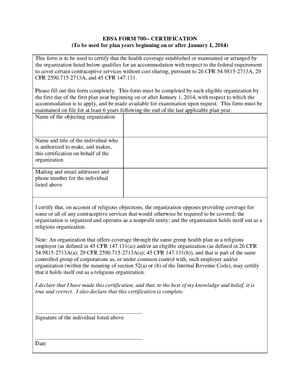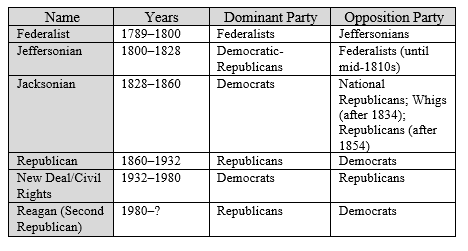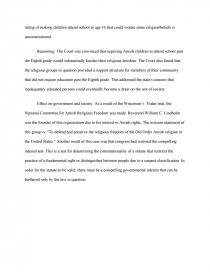Wisconsin V Yoder Summary
The respondents yoder and other members of a wisconsin amish community respondents took issue with the states compulsory education law maintaining that keeping children in school until the age of sixteen was against their religious principals in violation of the free exercise clause.
Wisconsin v yoder summary. The parents fundamental right to freedom of religion was determined to outweigh the states interest in educating their children. The court ruled that the individual liberty to worship freely outweighed the states interest in forcing students to attend school. November 12 2018 by. The three parents refused to send their children to such schools after the eighth grade arguing that high school attendance was contrary to their religious beliefs.
Members of the amish religion including jonas yoder refused to send their children to school beyond the 8 th grade for religious reasons. Jonas yoder wallace miller and adin yutzy collectively defendants adherents of the amish religion and traditional amish life were charged by the state of wisconsin plaintiff with violating its requirement that parents send children under 16 to school. Several amish families appealed a decision convicting them of failing to send their children to school until the age of 16 based upon freedom of religion under the constitution. Jonas yoder and wallace miller both members of the old order amish religion and adin yutzy a member of the conservative amish mennonite church were prosecuted under a wisconsin law that required all children to attend public schools until age 16.
Lexis 1879 402 us. Yoder is a 1972 supreme court case that addresses these questions through the lens of the first amendment to the constitution which protects our freedom of religion. 205 is the case in which the united states supreme court found that amish children could not be placed under compulsory education past 8th grade. Following is the case brief for wisconsin v.
The case is often cited as a basis for parents right to educate their children outside of traditional private or public schools. Facts of the case. Because wisconsin law compels school attendance for all children until age 16 yoder and the other respondents were tried and convicted for violating the law. 205 1972 case summary of wisconsin v.
Yoder the court prioritized free exercise of religion over the state interest in an educated populace. May 24 1971 brief fact summary. Based on the ruling in wisconsin v.
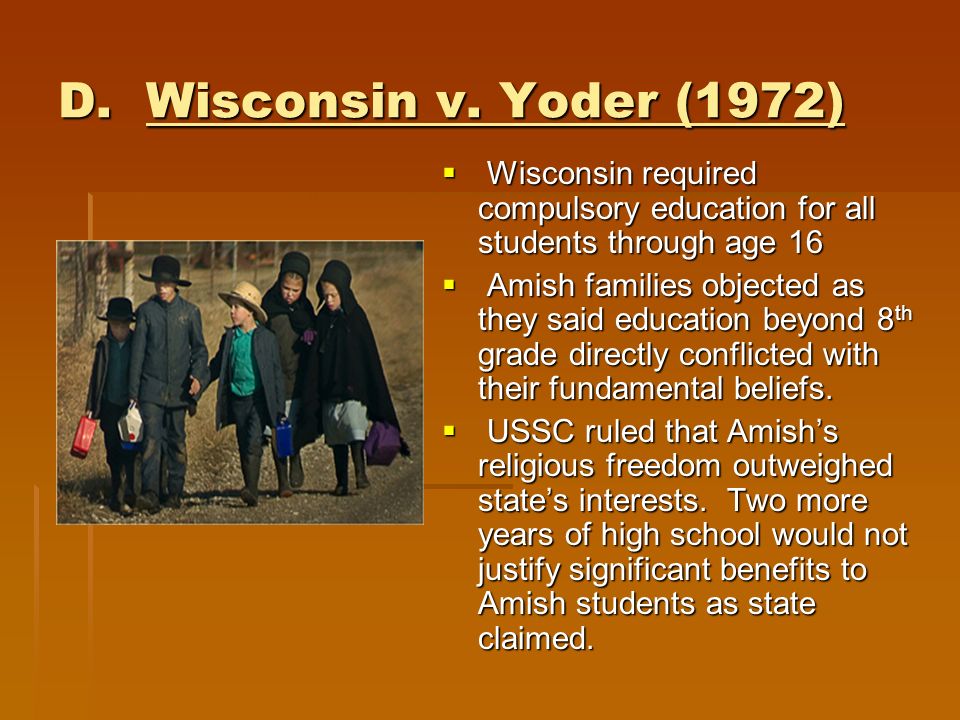


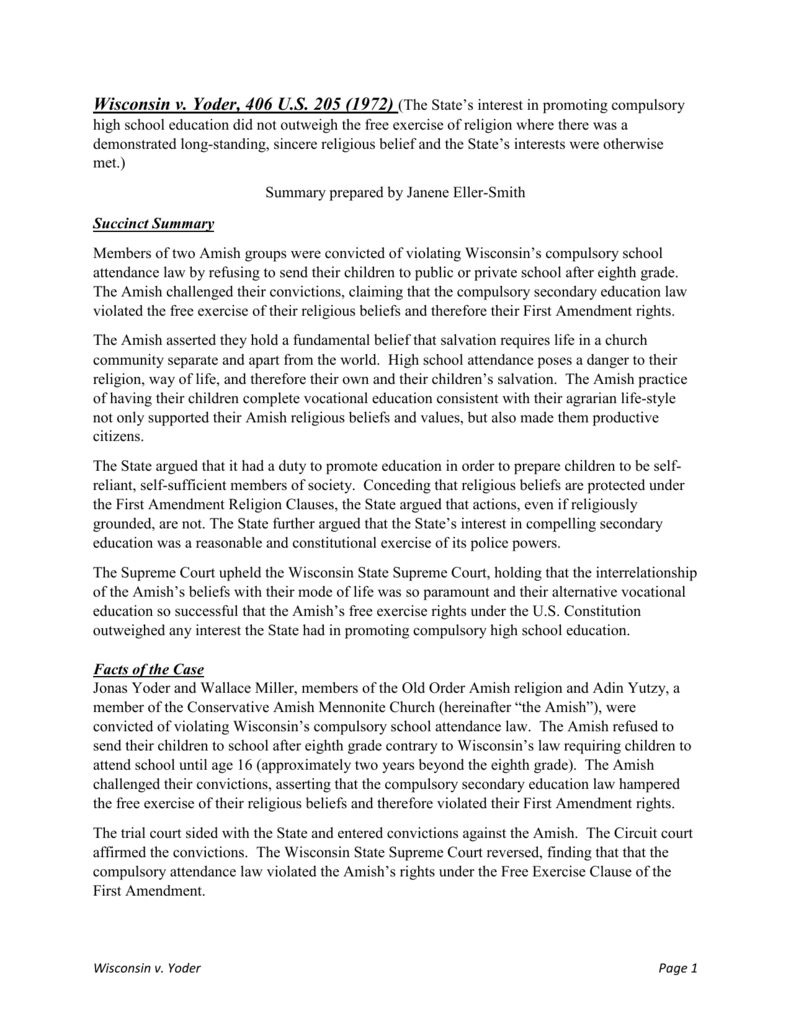





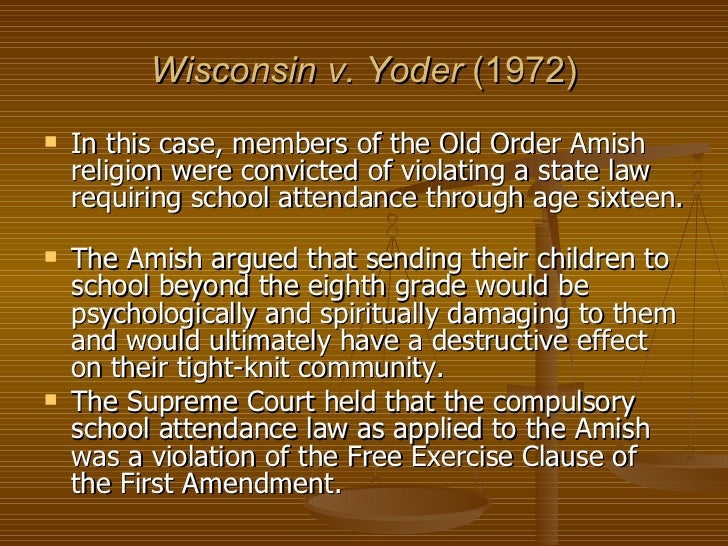
)





